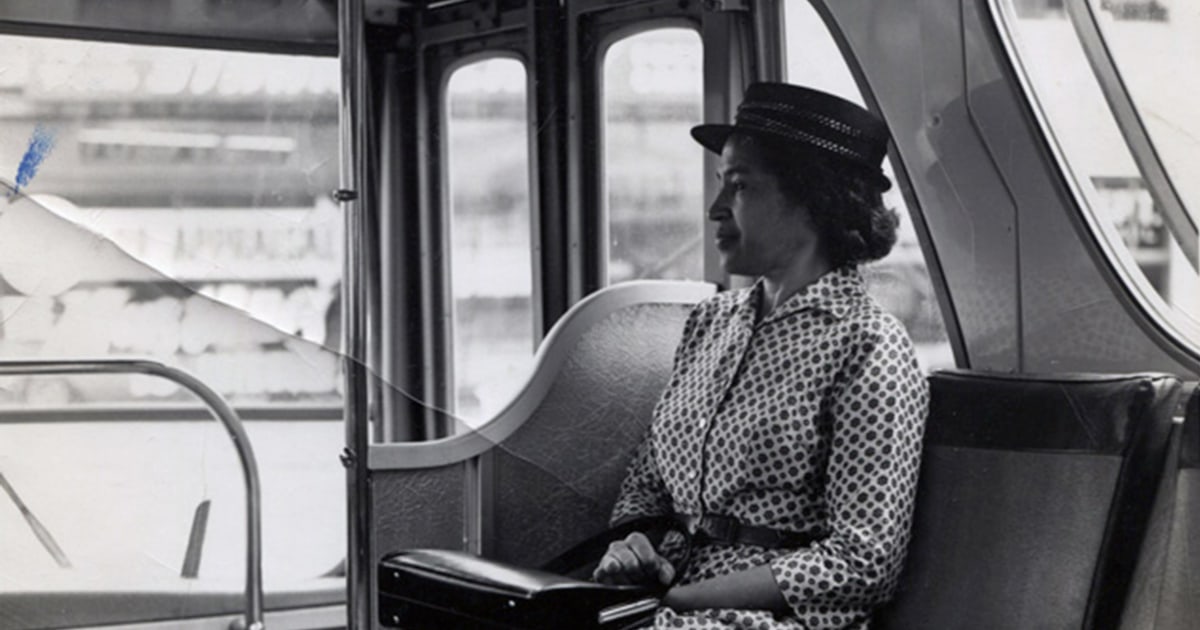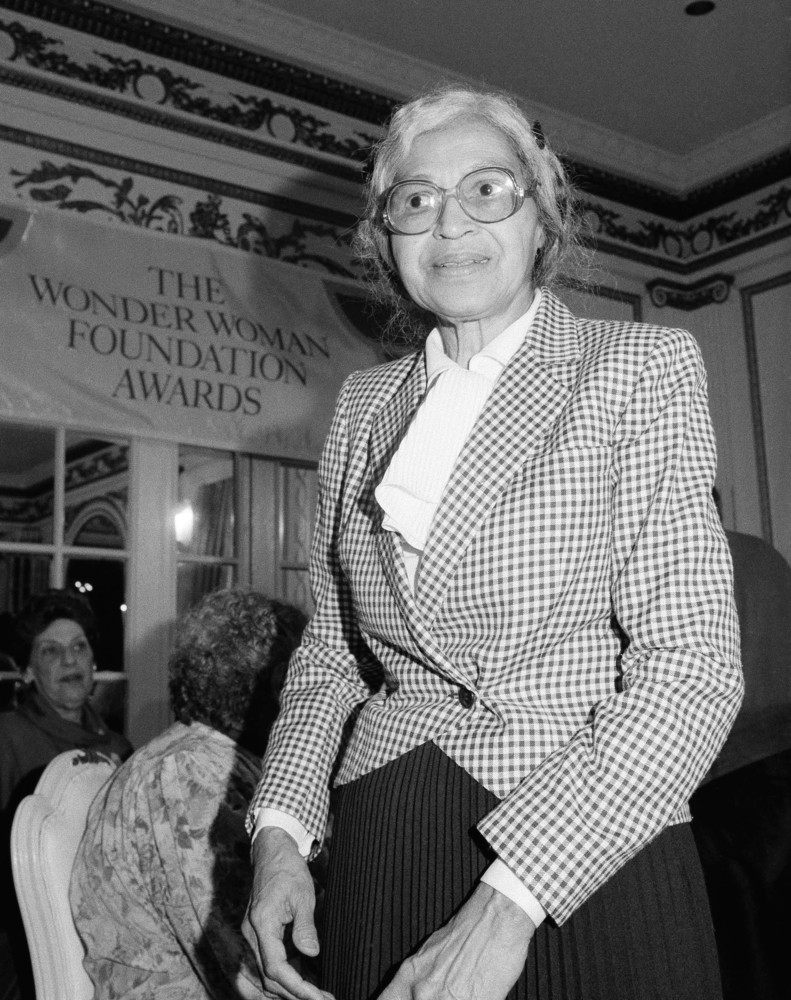
She and her family moved to Detroit, Michigan in 1957. In the wake of the Montgomery Bus Boycott, Parks lost her tailoring job and received death threats. Later, as secretary of the Alabama State Conference of the NAACP, she traveled throughout the state interviewing victims of discrimination and witnesses to lynchings. Parks founded the Montgomery NAACP Youth Council in the early 1940s.

When she inspired the bus boycott, Parks had been the secretary of the local NAACP for twelve years (1943-1956). She married barber Raymond Parks in 1932, and the couple joined the Montgomery National Association for the Advancement of Colored People (NAACP). The family moved to Montgomery Rosa went to school and became a seamstress. She witnessed night rides by the Kus Klux Klan and listened in fear as lynchings occurred near her home. Rosa Louise McCauley spent the first years of her life on a small farm with her mother, grandparents and brother. Once, she even had been put off a bus for her defiance. Over the years, she had repeatedly disobeyed bus segregation regulations. Parks became an instant icon, but her resistance was a natural extension of a lifelong commitment to activism. A Supreme Court ruling and declining revenues forced the city to desegregate its buses thirteen months later. Parks' arrest on Decemlaunched the Montgomery Bus Boycott by 17,000 black citizens.

Called "the mother of the civil rights movement," Rosa Parks invigorated the struggle for racial equality when she refused to give up her bus seat to a white man in Montgomery, Alabama.


 0 kommentar(er)
0 kommentar(er)
